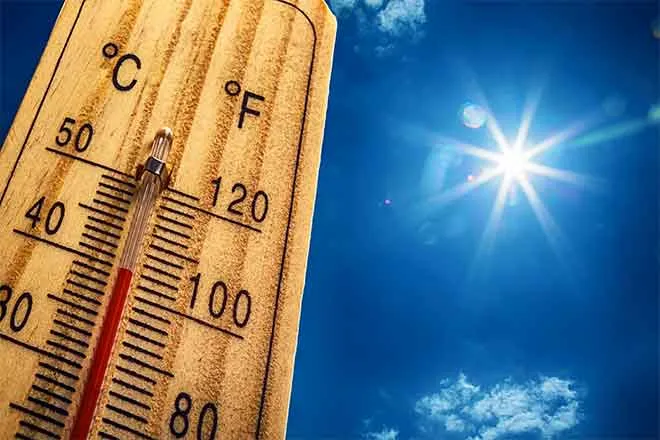
Study: Climate change may affect stroke side effects
Click play to listen to this article.
(Indiana News Service) Climate watchers are predicting this summer's temperatures may set records, which could aggravate some medical conditions.
A 30-year study of health records from more than 200 countries and territories suggests a connection between stroke and climate change. The online publication "Neurology" reported the growing number of global deaths and disabilities from strokes are linked to -- but not caused by -- climate change.

Dr. Ann Jones, stroke neurologist at Indiana University Hospital, said when the body feels extreme heat and sweat evaporates, hypercoagulation, or blood thickening, occurs, which increases the chance for blood clots. Winter weather can also produce an instinctive response.
"The cold makes us kind of react with our fight-or-flight kind of drive, and it makes our blood vessels close down or vasoconstrict," Jones explained. "That can raise blood pressure up and that can predispose you to stroke."
Jones noted an ischemic stroke involves a clogged artery preventing blood from flowing to brain tissue. A ruptured artery during a hemorrhagic stroke causes blood to travel outside the artery wall into the brain tissue.
The Centers for Disease Control and Prevention reported almost 43 percent or 3,500 per 100,000 Hoosiers died from a stroke in 2021. Indiana ranks 34th in the nation for the rate of strokes.
The Yale Center on Climate Change and Health found heat can increase the risk of a stroke. Recent global burden-of-disease studies found 2 to 5 million deaths per year are linked to extreme temperatures globally. And climate change can also indirectly impact health through poor water quality, air pollution and increased spreading of infectious diseases.
Jones maintained good health is a start toward prevention and recommends the Mediterranean diet; consuming less red meat for optimal well-being and getting 30 minutes of exercise five times per week.
"Some things are out of our control," Jones acknowledged. "But just taking care of yourself in the ways that we can; focusing more on vegetables, fish, and staying hydrated, working on blood pressure with that reduced goal of less than 130 over 80."
The study indicated more research could identify the impact of temperature change on stroke as a way to address health inequalities including the burning of fossil fuels, deforestation and industrial processes.
















